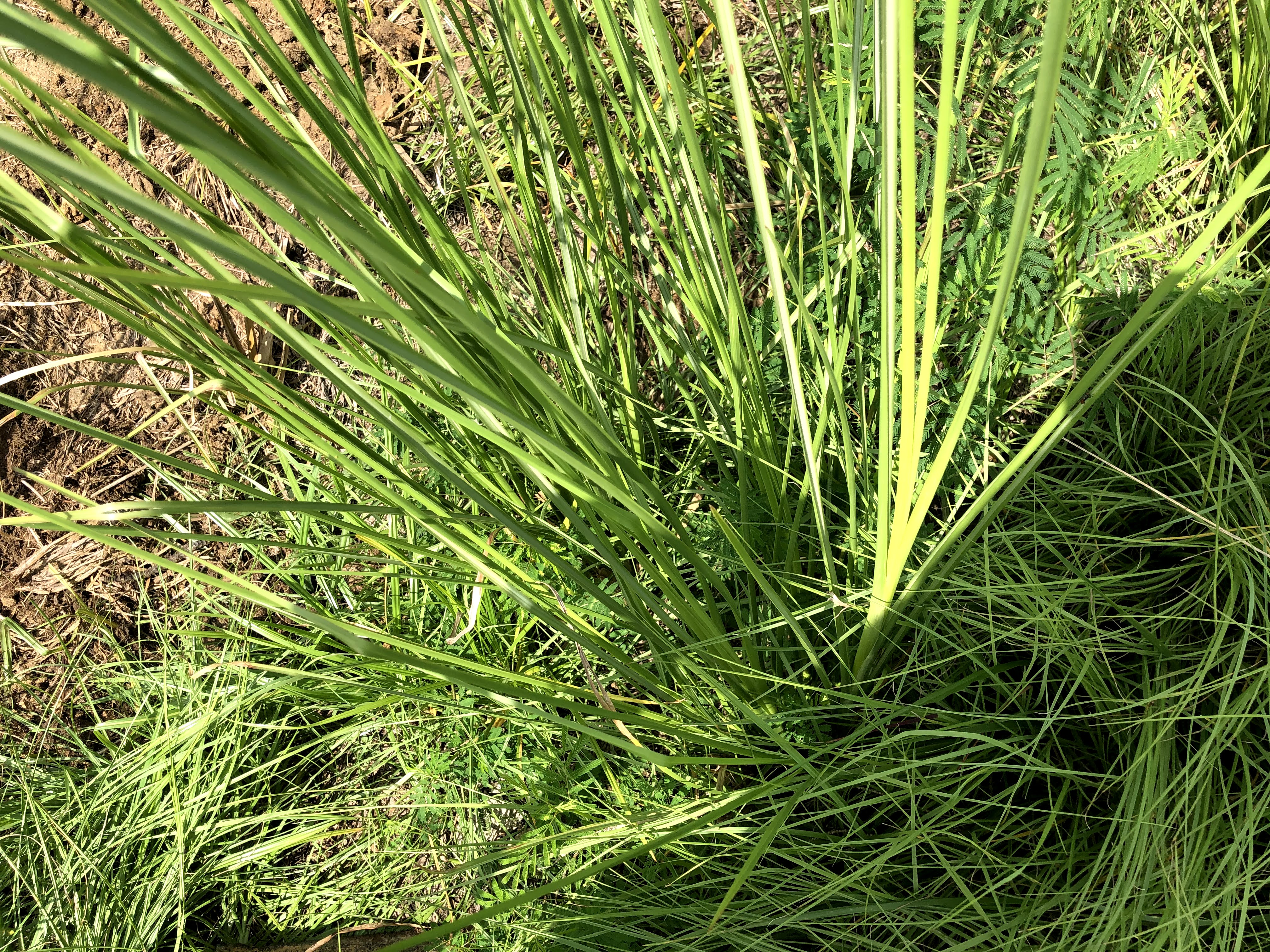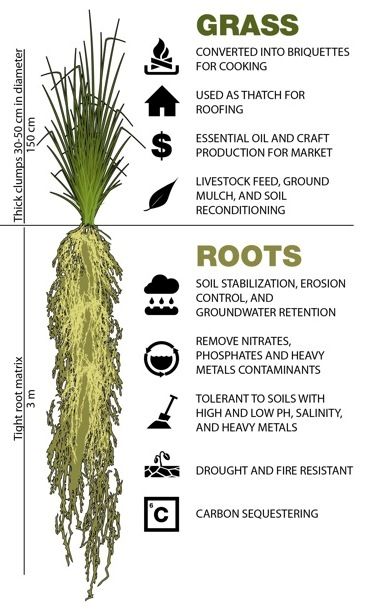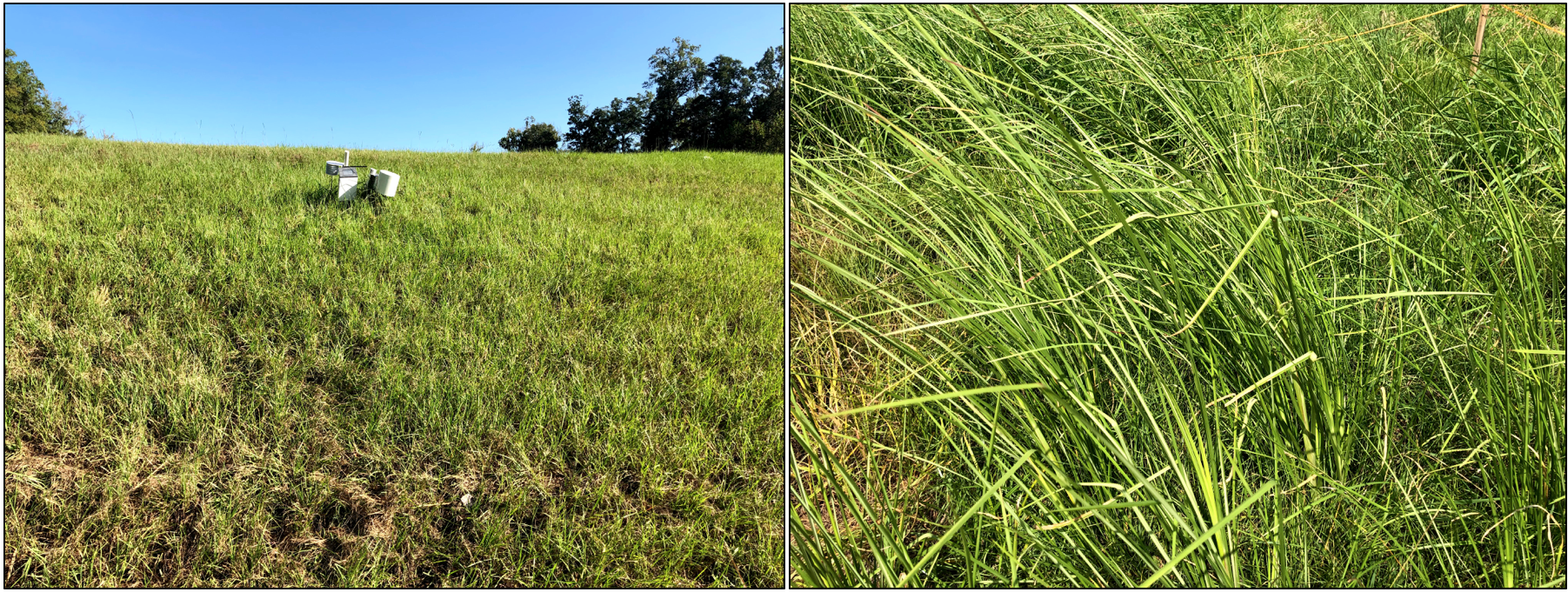
![]()
[hr]Dr. Sadik Khan, an assistant professor in the Department of Civil and Environmental Engineering at Jackson State University, has been awarded a CAREER Award of $539,710 from the National Science Foundation (NSF) to advance the study and use of vetiver grass for preventing slopes from failing.

NSF provided the grant as part of the Faculty Early Career Development Program. CAREER is a foundation-wide activity that offers the most prestigious awards in support of early-career faculty who have the potential to serve as academic role models in research and education. Recipients also lead advances in the mission of their department or organization.
Through this award, Khan will lead a project titled “CAREER: Climate Resilient Landslide Repair on Expansive Soil Using Vetiver Grass.”
[pullquote]”Water tries to flow on top of vetiver grass, but vetiver grass manages to keep the soil in place.” — Dr. Sadik Khan, assistant professor, Department of Civil and Environmental Engineering[/pullquote]Vetiver grass keeps the soil in place with its high-strength roots that extract water from the soil, thus acting like a drain by keeping the soil dry. Khan said Yazoo Clay, for example, has cracks. “So, when rainfall occurs, water gets into those cracks, and the Yazoo Clay becomes really muddy. As a result, slopes with Yazoo Clay fail. We need to have a system that can take out that water.”
Vetiver grass appears to be an ideal solution in southern states and assists in repairing and maintaining slopes in highway embankment. As well, it strengthens levees and dams owned by city, state or federal agencies. Currently, Khan is working on projects funded by the Mississippi Department of Transportation (MDOT) and MarTREC (a Tier 1 University Transportation Research Center of USDOT) to advance protocols for investigating landslides and adopting proactive techniques to prevent infrastructures from failing.
Khan said the use of vetiver grass is prevalent in warm climates such as his native Bangladesh. The grass is also ubiquitous in India, Thailand and in some African countries such as Nigeria. He noted that Southern states in the U.S. have similar warm climates, making vetiver grass conducive for growing vibrantly and for improving the infrastructure.
An added component is that vetiver grass is “super cheap, and anybody can plant it,” said Khan, explaining that the College of Science, Engineering and Technology will study the best time for planting the grass before the soil starts to fail. While some people purchase 10-15 grass roots, Khan once purchased 1,000 in Texas, piquing the curiosity of the nursery owner. Subsequently, he explained his research dealing with soil erosion.
 “We have the grass. We just need to change the application of how it’s being used.” Khan explained how it works: “Water tries to flow on top of vetiver grass, but vetiver grass manages to keep the soil in place. It takes the water from the soil and, at the same time, when the water tries to flow on top, it creates a top cover that guides the water and prevent it from washing away the soil.”
“We have the grass. We just need to change the application of how it’s being used.” Khan explained how it works: “Water tries to flow on top of vetiver grass, but vetiver grass manages to keep the soil in place. It takes the water from the soil and, at the same time, when the water tries to flow on top, it creates a top cover that guides the water and prevent it from washing away the soil.”
In general, the focus of the grant will be to understand the root-soil interaction of vetiver grass as a bio-inspired and climate-resilient solution for stabilizing shallow slope failures in expansive soils. Also, Khan wants to transform the slope-repair paradigm. Rather than being reactive to slope failures, he advocates a proactive approach that will lead to a safer and resilient infrastructure.
[pullquote align=”right”]Researcher Khan advocates for a proactive approach that will lead to a safer and resilient infrastructure.[/pullquote]This grass project is jointly funded by the Engineering for Civil Infrastructure (ECI) Program, the Established Program to Stimulate Competitive Research (EPSCoR), and the Division of Civil, Mechanical and Manufacturing Innovation (CMMI).
Khan said getting selected for the grant was tedious and super-competitive. “There are not many opportunities for this type of funding. We have just one program, or hardly two programs, that fits into the type of work we do. That’s why I was super-excited, I’m still super-excited.”
He said JSU students will assist in the study. “I’m always a big supporter of involving students in the research because that’s how I was being trained.” Khan said the research will include graduate and undergraduate students in the five-year project.
“Because we are trying to include more students, we may include social media (Facebook, YouTube and others) in our work.” Khan also envisions research participation by high school students.
Meanwhile, he commends JSU for inspiring research capabilities. “I was extremely fortunate to get the opportunity to work here.” He said studying, working and training in the South and Southwest climates matched his previous training. Khan earned his master’s and Ph.D. in Texas before relocating to Mississippi.
Khan said he’s also grateful for the support from the NSF, colleagues, students and MDOT, especially, for “involving us in many of the different problems” of the state.
NSF is known for funding research and education in most fields of science and engineering through grants and cooperative agreements to more than 2,000 colleges, universities, K-12, businesses, informal science organizations and other research organizations throughout the U.S.







